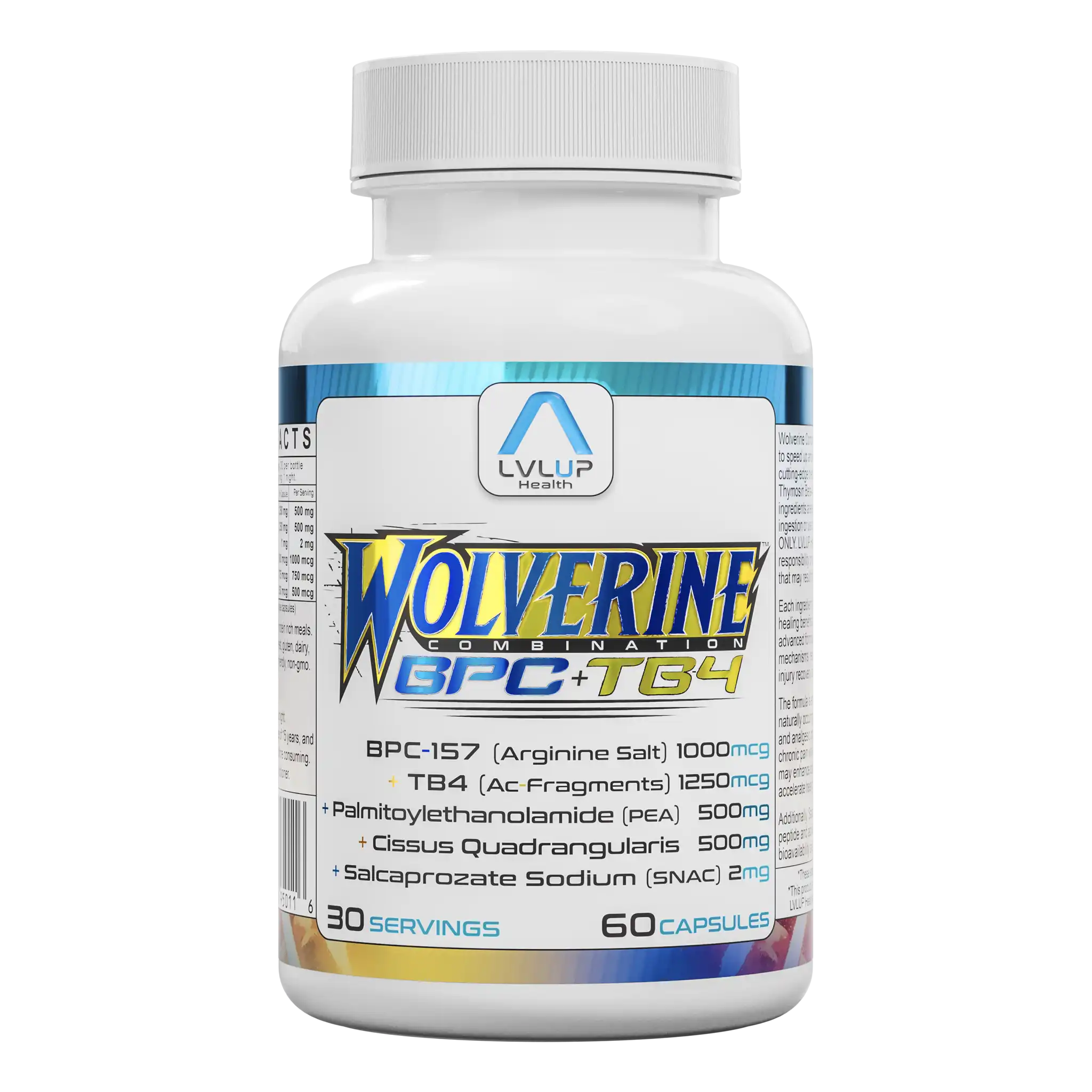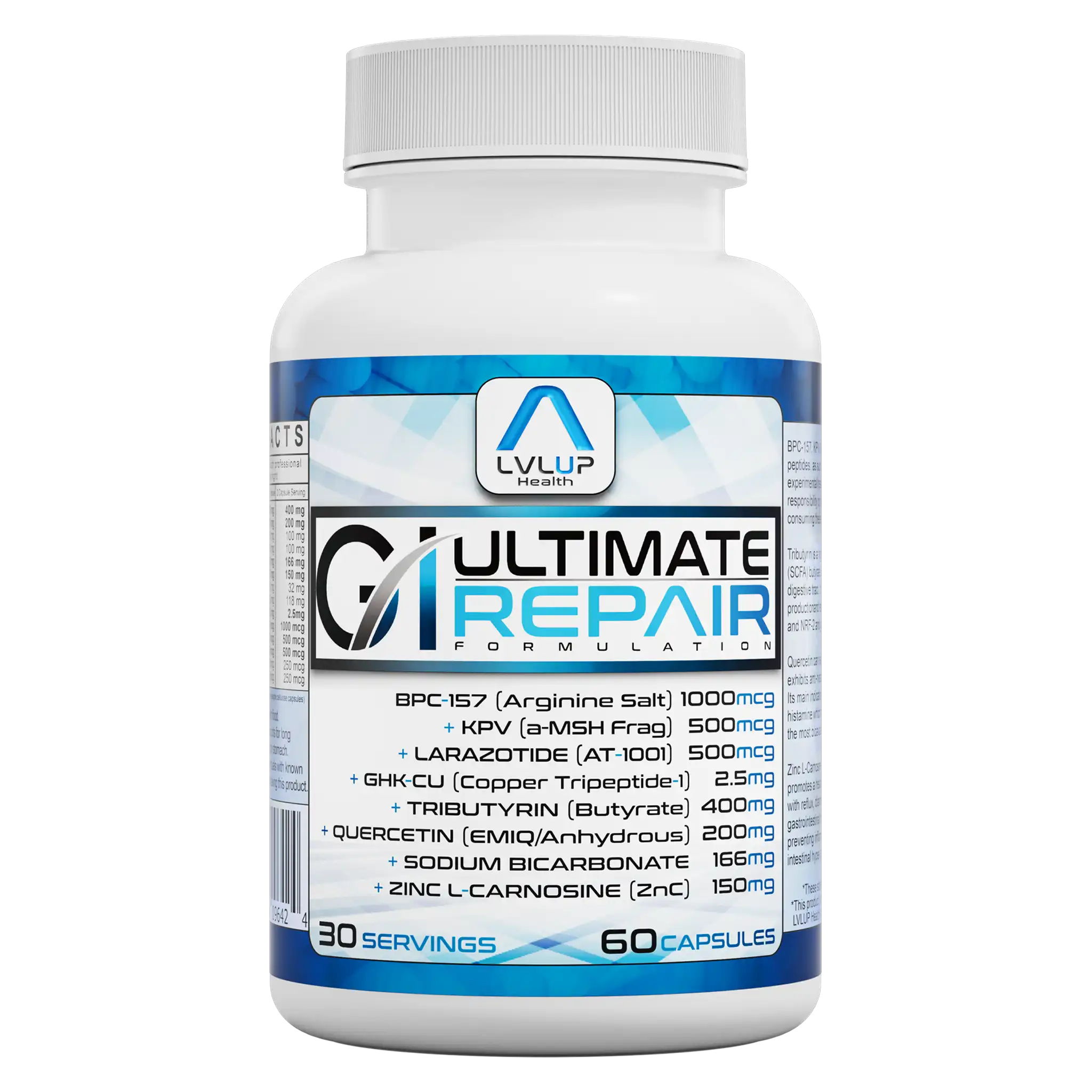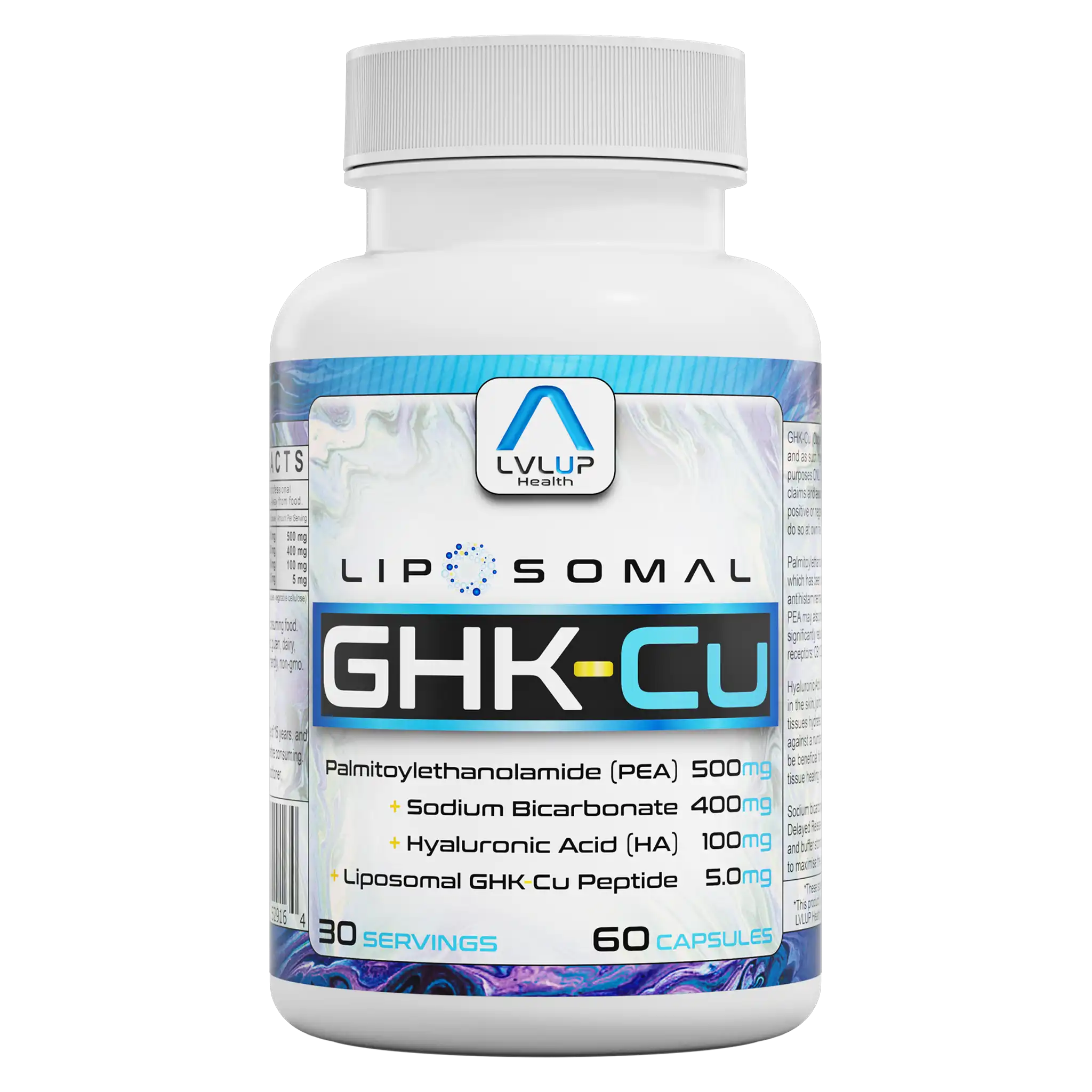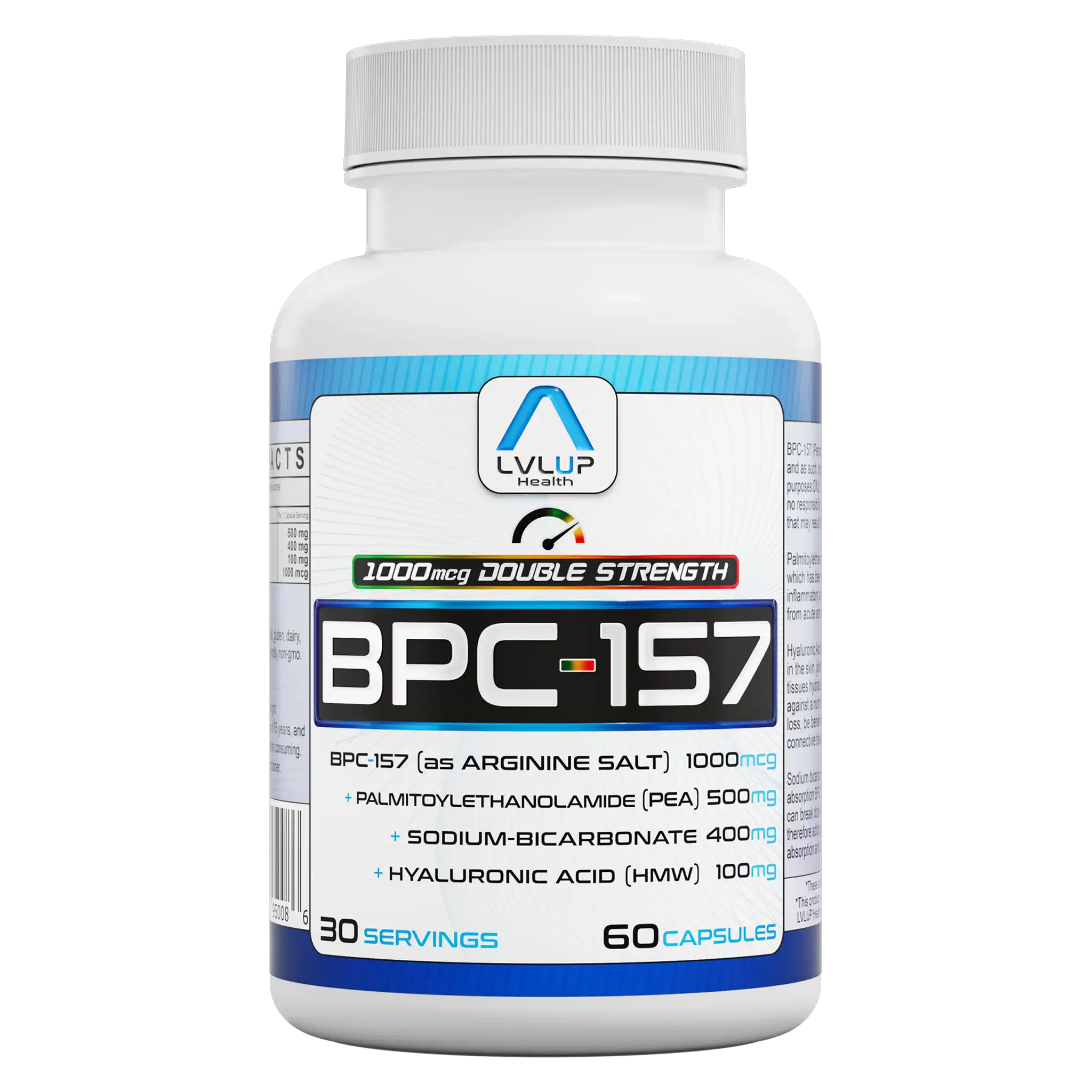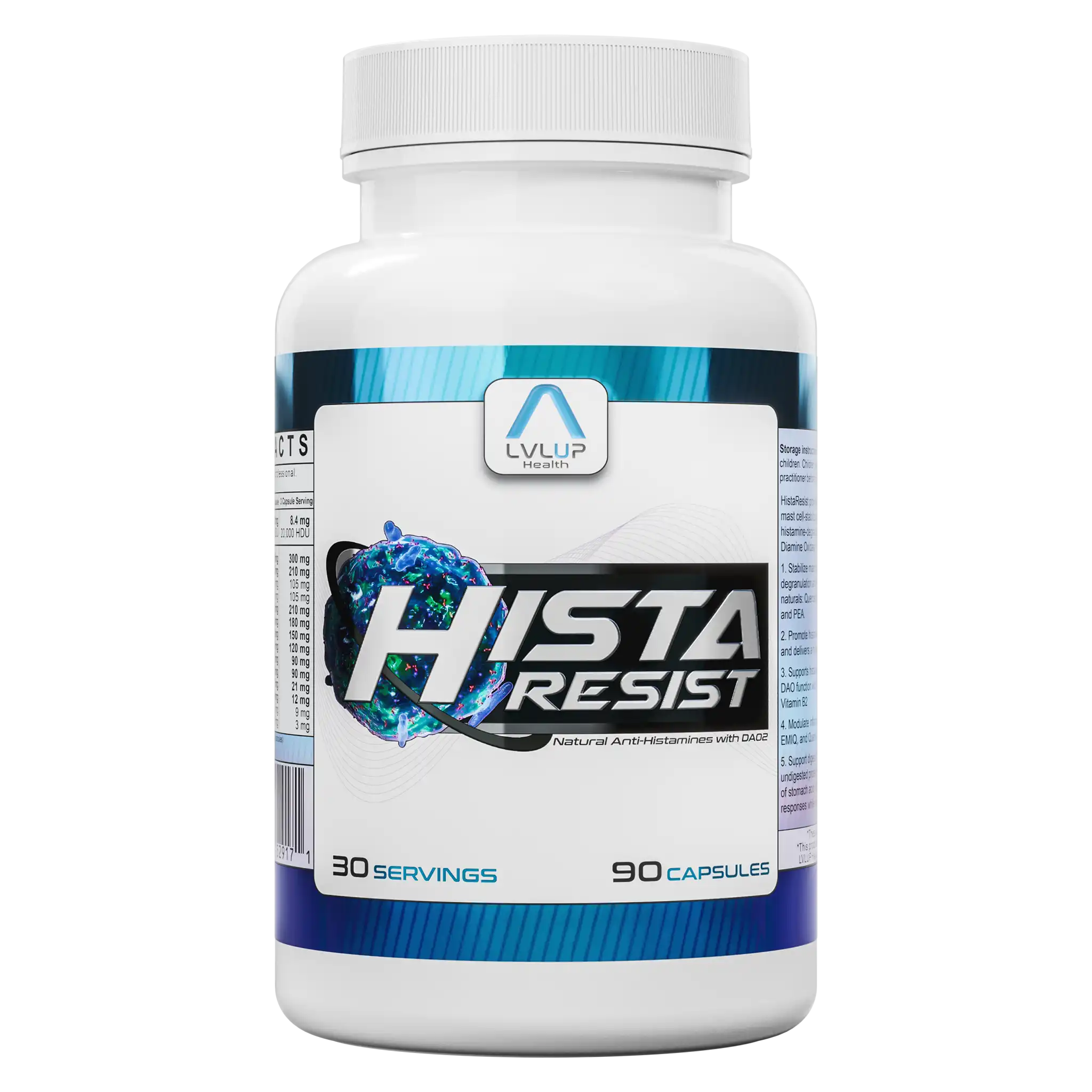Vitamin B2
About Vitamin B2
How Vitamin B2 Works in Your Body
Riboflavin is a critical component for enzymes that drive energy production. It forms the basis for coenzymes FAD (flavin adenine dinucleotide) and FMN (flavin mononucleotide). These coenzymes are essential in extracting energy from carbohydrates, fats, and proteins within mitochondria. Without enough riboflavin, cells would struggle to maintain energy production.
Beyond Energy Production
Vitamin B2 isn’t just about ATP creation. It also plays a role in recycling nutrients like vitamin B6 and niacin, maximizing the benefits from foods and other supplements. Riboflavin supports antioxidant defenses by aiding glutathione production, which protects cells from oxidative stress.
Histamine Management
Riboflavin aids in the production and activity of DAO (Diamine Oxidase), an enzyme that breaks down histamine. This can help alleviate issues like itching skin, food sensitivities, or digestive distress. By supporting DAO function, vitamin B2 can help manage skin flare-ups or redness due to histamine overload.
Mitochondrial and Skin Support
Riboflavin directly supports mitochondrial function and boosts glutathione synthesis, which can help the body recover from stressors that trigger inflammation. Common signs of deficiency include cracked lips or dry eyes, highlighting its role in skin health and eye comfort.
Usage in Supplements
Riboflavin is often included in supplements for energy metabolism, gut comfort, brain support, and histamine management. It’s part of formulas like Hista-Resist, which combines enzyme boosters with botanicals for sensitive reactions.
Found In
Formulated With
Detailed Information
Flavin-Based Redox Chemistry
Flavin-based redox chemistry is central to cellular respiration. FAD and FMN are critical electron carriers in mitochondrial complexes I and II. Riboflavin-dependent enzymes modulate ATP generation through oxidative phosphorylation and fuel antioxidant pathways via glutathione reductase activity, maintaining reduced glutathione pools essential for cellular redox homeostasis.
Role in Vitamin and Neurotransmitter Synthesis
Riboflavin is necessary for converting vitamin B6 to its active form and aiding niacin biosynthesis. Deficiencies can diminish neurotransmitter synthesis potential. It also supports MTHFR activity, influencing homocysteine metabolism and methyl group transfers crucial for genomic stability.
Histamine Breakdown and Mitochondrial Support
DAO, responsible for extracellular histamine breakdown, is a flavoprotein that requires FAD. Dietary riboflavin optimizes DAO activity, aiding histamine clearance and reducing inflammatory reactions like erythema or itchiness. By supporting mitochondrial energetics, histamine clearance, and glutathione recycling, riboflavin aids in protocols targeting mast cell regulation and metabolic resilience.
